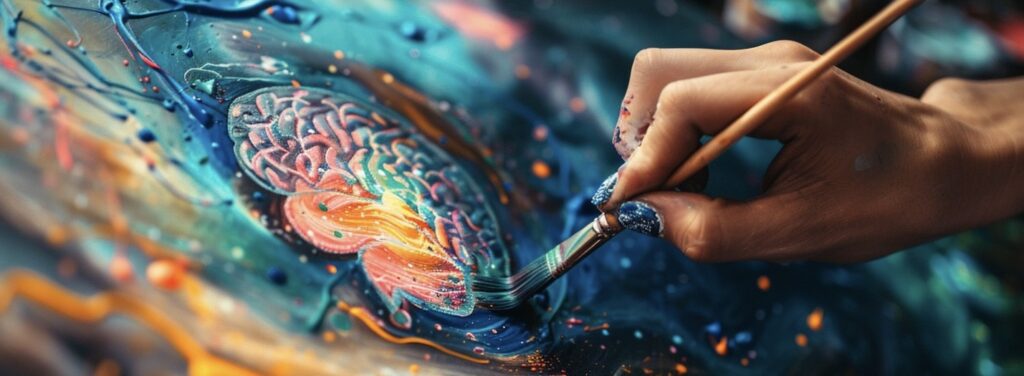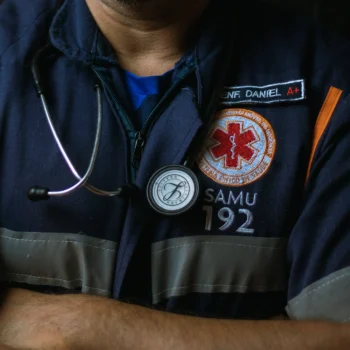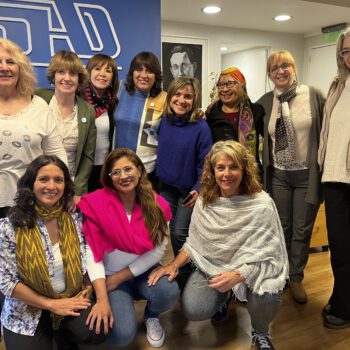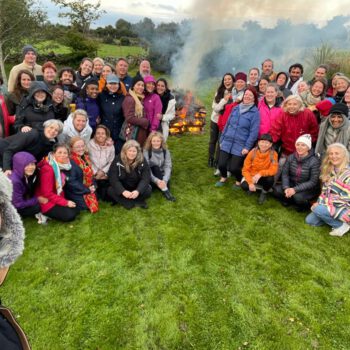Diagnosed with ASD in 2020 and Dyslexia in 2022, Dr Taylor combines her research work with her therapy practice, which blends counselling, consulting and coaching and serves mainly neurodivergent clients. She also works with academics to highlight the importance of mental health, wellness, and equity, and is committed to supporting activists on the frontlines of climate justice and environmental struggles.
This post is a short edited excerpt of Louise’s interview which explores neurodiversity, trauma, the risks, challenges and gifts of living differently. Listen to her full interview on The Gifts of Trauma Podcast.

I learned I was Autistic when I was 40, and a few years later, while writing the last few words of my doctorate thesis, found out I was Dyslexic. I personally believe I’m more ADHD than Autistic, but I haven’t paid for that diagnosis yet.
I see the neurodiversity movement as a social justice movement. And to me, being neurodivergent means I can’t function in, or keep up with, what’s expected in ‘normal’ systems. I can’t tick all of those boxes and I can’t work in an office from nine to five without burning out. So whatever a healthy normal person is, in terms of their nervous system and mental health, I’m not it.
Neither my GP nor anybody in my own family, many of whom are GP’s and nurses, ever identified my Autism. I actually had to get a private assessment, as when I asked my GP, they said, “There’s no point in getting assessed. You’re too smart, too successful, too intelligent.” I now think, because of the ableism and the neurophobia within the medical profession, they thought that shielding me from that diagnosis was doing me a favor. But without an assessment, life was quite dangerous for me because I didn’t pick up on critical cues and had loads of blind spots.
When I arrived for my private assessment, it was refreshing to be told,”You’re obviously autistic.” Apparently, it’s clear in the way I show up, communicate and use language. When I read my report, my first thought was, “How am I not dead?” I can’t pick up on danger cues. It was really important for me to understand what I previously didn’t know, so I could get appropriate support. Interestingly, I was also told by my assessor, “You may be in the minority now, but in the future, the majority of people will be considered neurodivergent.”
So to me, identifying as neurodivergent is not conforming to what’s deemed to be ‘normal.’ The biggest issue I’ve come up against, since my diagnosis, is neurophobia. People I’ve known for years suddenly don’t know how to talk to me. I didn’t change, yet they act like it did. I also think the word disorder is both offensive and dangerous. Yes I’m different, but do I feel disordered? No. And calling autism, ‘a disorder,’ places neurodivergent people in danger of being stigmatized or abused by those who aren’t educated and informed.
Yes, I’m different and my brain is wired differently, but I have a great life and I, along with the many neurodivergent people I work with, have much to offer society. In certain areas I’m celebrated, just like the many uniquely different, gifted, highly sensitive people who bring immeasurable beauty and joy to our world.
Identifying as neurodivergent also supports my commitment to being authentic and living life fully. I believe we must embody our work and live in such a way that we make our lives art. It’s all about connecting with our true authentic selves, creativity and soul in our own ways. It’s beautiful to see an actualized human being living in a way that’s true to who they are.
I love nature, singing, and the idea of dancing for no reason. Yes, I am an eternal student, but I’m also an eternal teenager. Lots of people need alcohol, but I just love to have fun. I take what I do seriously, but there’s a lot of joy and fun to be had in this work, and I like to enjoy life as much as possible. So when someone isn’t dancing or singing or being creative, what happens to their mental health, lifestyle, and physical health?
It depends on each person. The life I want is not necessarily my clients’ ideal life, but there’s something about me or my experience they want. That’s why they choose to work with me. I think creativity is part of spiritual practices, and when they find their creative outlets, their ways of expressing their soul, their meraki, they understand themselves better and have greater clarity on how their unique neuro-blend impacts their life and relationships. They become more content and happier with themselves and their lives.
A lot of people think they’re not creative, which I find really sad as I believe we’re all creative. I think the education system and capitalism make us think that if we do something involving creativity and the arts, it has to be sellable. They ask, “What’s its market value?” I believe that’s why people think they’re not creative, because they’re not good at art. At school, I was asked to draw an apple as realistically as possible. Since I couldn’t do that, I internalized “I’m not good at art,” which took me years to unlearn and understand. But rendering a realistic likeness is not the point of art. Singing an impromptu song, having a rich core memory of beautiful things… how do you put value on those? That expression, that freedom, that joy, is creativity.
I love the word meraki and when people do things with meraki; expressing their soul. I remember in Japan, I was making pottery. Everybody else’s pots were so perfect, and mine were always so wonky. I’d apologize to my teacher. “I’m really sorry, it’s no reflection on you but I can’t replicate the pots properly like everybody else.” He’d say, “Don’t worry about it, it doesn’t have to be perfect. Just do it.” I think that’s a lovely way to try new things and experience life, just get stuck in. Enjoy yourself and do the best you can. (And it turns out people like my pots because they’re different and kooky and quirky!)
I love it whenever clients come to tell me about, or show me things (or artwork) they’ve made that they don’t want anybody else to see. It’s always obviously so uniquely theirs! And it’s really so beautiful when people feel safe enough to share that with me. That’s the gift of what I get to do.
The Gifts of Trauma is a weekly podcast that features personal stories of trauma, transformation, healing, and the gifts revealed on the path to authenticity. Listen to the interview, and if you like it, please subscribe, leave a rating or review, and share it with others in your community.




Comments are closed.